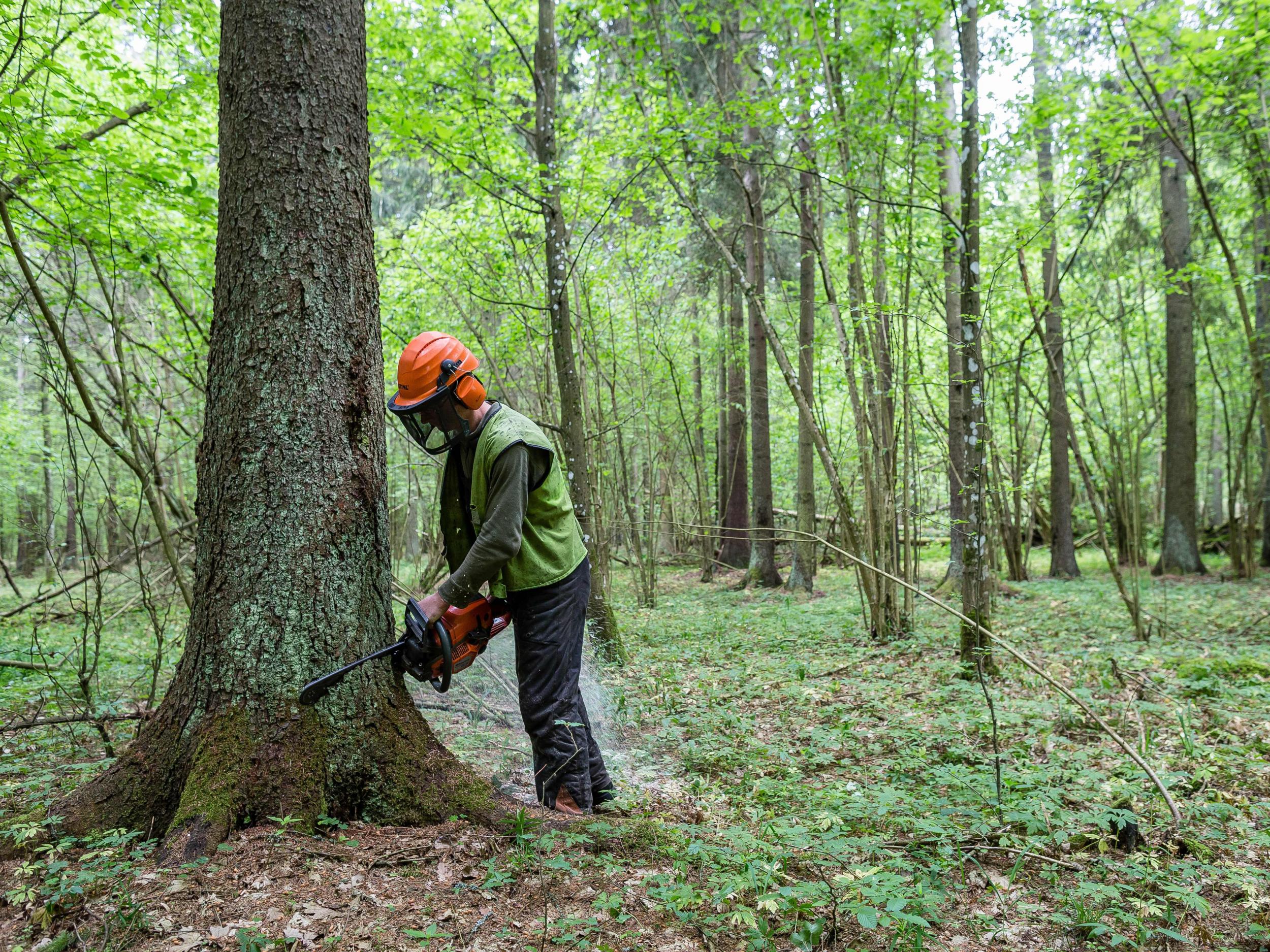Europe’s renewable energy strategy will destroy forests and harm climate, scientists warn
'It makes no sense at all to save trees through recycling and then turn around to burn them for energy. There is nothing green, renewable, or environmentally friendly about that'

Leading climate scientists have denounced the EU’s decision to push wood as a “renewable” energy source.
They say the move will likely result in both a boost in greenhouse gas emissions across Europe and devastation of some of the world’s most ancient forests.
Not only are forests home to much of the planet’s biodiversity, they absorb climate-damaging CO2 from the atmosphere and are therefore considered a vital buffer against climate change.
Despite this, earlier this summer European officials decided – against the advice of hundreds of scientists – that wood could be considered a low-carbon fuel, meaning that trees can be cut down directly to burn.
The thinking behind this action, which would double Europe’s use of renewable energy by 2030, is that new trees can be planted to replace the forests that have been removed.
However, in a paper published in the journal Nature Communications, scientists have outlined what they see as the flaws in this logic.
Burning forests releases a lot of CO2 into the atmosphere, and it can take many years for the new trees to absorb enough carbon to make up for the quantity that has been released.
10 photographs to show to anyone who doesn't believe in climate change
Show all 10The scientists estimate that greenhouse gas emissions could actually increase by up to 10 per cent if wood is widely used as fuel and will lead to many forests around the world being cut down to keep up with European energy demand.
They also suggested that cutting down trees for fuel will encourage other nations to follow suit. Brazil and Indonesia have already pledged to tackle climate change by burning more wood.
“Treating wood as a carbon-neutral fuel is a simple policy decision with complex cascading effects on forest use, energy systems, wood trade and biodiversity worldwide,” said Professor Eric Lambin, a researcher at Stanford University and one of the paper’s authors.
“Clearly, many of these effects have not received due attention.”
Professor Wolfgang Lucht from the Potsdam Institute for Climate Impact Research said: “It makes no sense at all to save trees through recycling and then turn around to burn them for energy.
“There is nothing green, renewable, or environmentally friendly about that. Global forests are not disposable.”
In response, Jean-Marc Jossart from trade association Bioenergy Europe said that “bioenergy is not and will not be a cause of deforestation in the EU or elsewhere”, pointing to a 32 per cent growth in EU forests over 25 years even while bioenergy consumption has doubled since 2000.
“The rate of replacement of trees is rapid,” he added.
“The EU-28’s carbon stock in forests keeps on increasing, thanks to sustainable forestry management and reforestation programmes. Most importantly, European forests provide resources to plenty of industries and are not managed for energy purposes only.”
Even so, the scientists questioned why the EU was focusing on burning wood when it had the capacity to invest in renewable energy systems that posed less threat to the environment.
“Compared with the vast majority of what counts as ‘bioenergy by harvesting wood,’ solar and wind have large advantages in land use efficiency and lower costs,” said Dr Dan Kammen from the University of California, Berkeley.
“The focus on wood is not only counter-productive for climate change but unnecessary.”
The announcement comes as a panel of UK scientists revealed a plan to meet the nation’s emission targets by planting stretches of forest across the country to act as valuable carbon sinks.
New forests are considered one of the most straightforward techniques available to remove large volumes of CO2 from the atmosphere, a strategy seen as vital if the more ambitious goals set by the international Paris climate agreement are to be met.
The recent heatwave that struck Europe woke many people up to the threat posed by climate change and the impact it is having on conditions across the continent.
Professor Jean-Pascal van Ypersele of the Universite catholique de Louvain and former vice chair of the Intergovernmental Panel on Climate Change said the new policy would only make this problem worse.
“European citizens once more experienced the harsh effects of global warming this summer,” he said.
“This counterproductive policy will increase deforestation and carbon emissions rather than contribute to decreasing them. More emissions will only make the summers even hotter for decades to centuries.”
Subscribe to Independent Premium to bookmark this article
Want to bookmark your favourite articles and stories to read or reference later? Start your Independent Premium subscription today.

Join our commenting forum
Join thought-provoking conversations, follow other Independent readers and see their replies